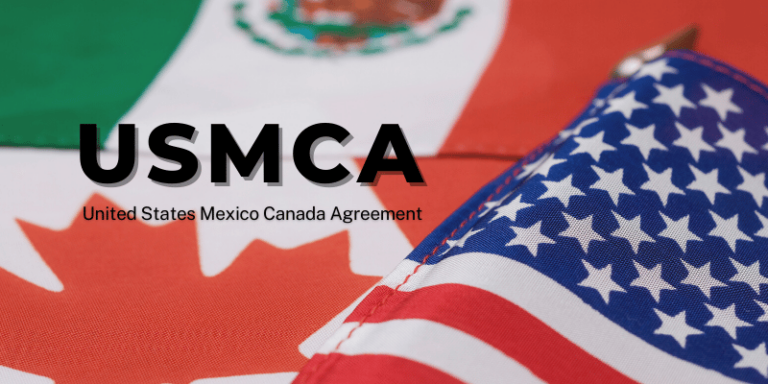Court Expands Liability for Third Parties in Import Transactions
In a decision with potentially far-reaching effects, the Court of Appeals for the Federal Circuit (the “CAFC”) recently held that liability for import violations can extend to persons other than an Importer of Record (IOR) in section 1592 penalty cases (19 U.S.C. § 1592).
In United States v. Trek Leather, Inc., and Harish Shadadpuri, Ct. 2011-1527 (CAFC, September 16, 2014) ( http://www.cafc.uscourts.gov/images/stories/opinions-orders/11-1527.Other.9-12-2014.1.PDF ) a panel of circuit court judges vacated their previous decision and agreed with a decision of the Court of International Trade, which found that the owner and president (Mr. Shadadpuri) of a closely held corporation (Trek Leather, Inc.) was personally and individually liable for duties and monetary penalties under section 1592 for the unintentional, but grossly negligent, undervaluation of imported men’s suits.
The court’s rationale for holding Mr. Shadadpuri personally liable for the undervaluation departed from a more traditional analysis of third-party liability in Customs penalty cases. Without disturbing its prior case law, which rejects 1592 liability for third parties who “aid or abet” an importer who negligently presents false or misleading information to Customs when “entering” imported merchandise. The Court of Appeals determined that Mr. Shadadpuri was responsible for the “introduction” of the merchandise into the United States, and therefore had a duty to exercise care in connection with the eventual entry of merchandise and in making declarations to Customs (see 19 U.S.C. § 1484 (entry) and 19 U.S.C. § 1485 (declarations)). Section 1592 prohibits the filing of materially “false” entry documents or making material omissions. It includes acts or omissions incurred because of negligent, grossly negligent, or intentional conduct. A false document is one that contains, for example, an incorrect classification, omission of an element of value, or unsupported duty-free exemptions or preferences.
Focusing on the language of section 1592(a), the court noted that the customs penalty statute covers more than just “entry,” and that subsection (a)(1)(A) forbids any person to “enter, introduce, or attempt to enter or introduce” merchandise by means of false statements or omissions with intent or lack of care. Given this broad language, the court noted that it did not need to decide the question of whether Mr. Shadadpuri attempted to or did “enter” the merchandise. Rather, it relied instead on the “introduce” language of section 1592(a)(1)(A) to assess liability. After reviewing a history of the term, the court explained that the language:
| … “introduce” in section 1592(a)(1)(A) means that the statute is broad enough to reach acts beyond the act of filing with customs officials papers that “enter” goods into United States commerce . . . [and that] [i]t is broad enough to cover, among other things, actions completed before any formal entry filings made to effectuate release of imported goods. We need not attempt to define the reach of the term . . . . [T]he term covers actions that bring goods to the threshold of the process of entry by moving goods into CBP custody in the United States and providing critical documents (such as invoices indicating value) for use in the filing of papers for a contemplated release into United States commerce even if no release ever occurs. [Emphasis added.] |
Based on the undisputed facts, the court found that the specific conduct of Mr. Shadadpuri came within “the commonsense, flexible understanding of the ‘introduce’ language of section 1592(a)(1)(A),” reciting a laundry list of reasons, including:
| “He imported men’s suits through one or more of his companies.” “While suits invoiced to one company were in transit, he “caused the shipments of the imported merchandise to be transferred” to Trek by “direct[ing]” the customs broker to make the transfer, and that “[himself and through his aides, he sent manufacturers’ invoices to the customs broker for the broker’s use in completing the entry filings to secure the release of the merchandise from CBP custody into United States commerce. |
Mr. Shadadpuri also furnished to the customs broker, commercial invoices that materially understated the value of the merchandise, thereby reducing the calculated customs duties, knowing that fabric assists must be included on the import documentation. Through this activity, the court explained that “he did everything short of the final step of preparing the CBP entries and submitting them and other required papers to make formal entry.” Rejecting the notion that subjecting Mr. Shadadpuri to section 1592 requires the piercing of the corporate veil of Trek Leather, Inc., the court determined that he incurred liability through his own actions:
| Mr. Shadadpuri’s own acts come within the language of subparagraph (A). It is longstanding agency law that an agent who actually commits a tort is generally liable for the tort along with the principal, even though the agent was acting for the principal. … That rule applies, in particular, when a corporate officer is acting for the corporation. … We see no basis for reading section 1592(a)(1)(A) to depart from the core principle, reflected in that background law, that a person who personally commits a wrongful act is not relieved of liability because the person was acting for another.
We do not hold Mr. Shadadpuri liable because of his prominent officer or owner status in a corporation that committed a subparagraph (A) violation. We hold him liable because he personally committed a violation of subparagraph (A). |
While the Trek Court focused on the abhorrent but negligent actions and behavior of Mr. Shadadpuri, one should not assume that the case has narrow implications for the rest of the importing community, and those individuals that engage in duties and activities associated with importing goods. In closing, the court explains that:
| Mr. Shadadpuri argues . . . that only an importer of record can violate subparagraph (A). [W]hatever may be true for “enter,” the “introduce” language of subparagraph (A) covers acts by persons other than importers of record. |
As interpreted by the CAFC in Trek, the scope of the term “introduce” in section 1592(a) applies to “persons” who engage in actions that occur before any formal entry filings are made to effectuate the release of imported goods, including the process of entry by moving goods into CBP custody and providing critical documents (such as invoices indicating value) for use in the filing of entry documents. As such, liability under section 1592(a) can now extend to employees that work for an Importer of Record or facilitate the importation of goods for another party, and who have a duty to exercise care in connection with the eventual entry of merchandise, including supervisory personnel who permit such negligent actions to occur through their own action or inaction. Clearly, the stakes are now higher for companies and their employees, and we recommend that companies review their internal controls over import transactions to ensure that such controls are effective in minimizing the risk of non –compliance. The full extent and impact of the Trek decision, however, will take time to become known as CBP begins to assess 1592 penalties against persons that are not the importer of record for their own negligent action or inaction when importing goods by means of false statements or material omissions.
George Tuttle is a San Francisco-based attorney, whose practice focuses on Customs and international trade-related matters.
To learn about George and his services visit www.TuttleLaw.com
For more information on this subject, you may contact:
Mr. Tuttle at George.Tuttle.iii@TuttleLaw.com or at (415) 986-8780








